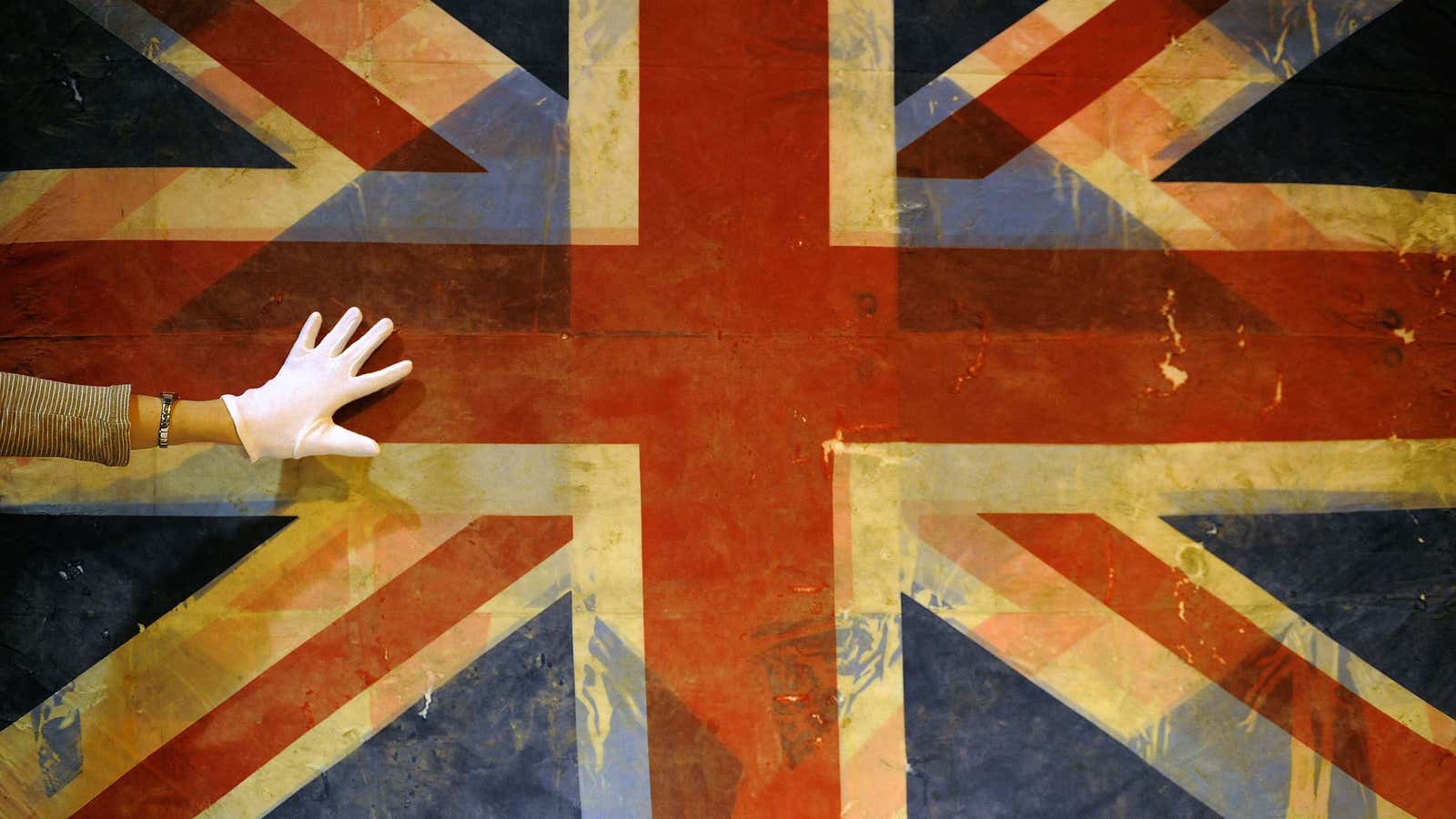In a deal described as “a massive moment for the north of England,” UK chancellor George Osborne announced that Manchester will get a directly-elected mayor in 2017. It will be the first mayor for a metropolitan area outside of London. “Giving cities power is part of our long-term economic plan to reduce the decades-old gap between north and south; London and the rest,” Osborne said.
The move comes a week after the government backed plans for a £5 billion high-speed rail line across the Pennines, linking Manchester with Leeds and reducing journey times to other cities like Liverpool and Sheffield. Again, the motivation is to make the north more competitive with the south.
Between an elected mayor with powers over public spending and shiny new infrastructure, the government’s plan is to make Manchester—a city of 2.7 million—an example of the revitalization of a region that has never recovered from the decline in British manufacturing. All of Osborne’s moves are in line with proposals laid out recently by Conservative-leaning think tank, ResPublica, which urged English cities to be devolved more power—including setting their own income tax.
The thing is, the people in the north don’t necessarily want all these new powers. Mancunians voted against the idea of a directly-elected mayor two years ago, as did Bradford, Sheffield, Newcastle, and a host of other cities. Very few English cities have mayors—which is both due to the influence of local councils that oversee much of everyday life, and the headaches that these suddenly-powerful new positions cause the national government. Mayoral elections have a tendency to throw up embarrassing results; H’Angus the Monkey, a local soccer mascot, became mayor of Hartlepool in 2002.
But following Scottish voters rejection of independence last month, the British government is keen to give English cities and regions more control over their own finances at the same time as it promises more powers to Scotland. This could see Manchester and other big English cities gain similar powers to London, which itself could make the case for even more autonomy.
The road to Boris
London had a de facto mayor in the 1980s, in the form of the head of the Greater London Council; that man, “Red” Ken Livingstone, clashed so constantly with Margaret Thatcher that the GLC was eventually abolished. Labour prime minister Tony Blair created the mayoralty in London in 2000, and the first mayor elected under the system was… Ken Livingstone, who was expelled from Labour after he lost his party’s nomination and decided to run anyway. He clashed constantly with Blair, who said he was going to be a “disaster,” until Livingstone was reinstated into the party in 2004 when it became clear that Londoners were set to re-elect him.
The mayor of London has the largest direct mandate of any British politician; the current mayor, Boris Johnson, is constantly cited as the frontrunner for the next leader of the Conservative Party. His profile means that he often upstages the prime minister at home and abroad.
This is Boris hitting back in 2012 at US presidential candidate Mitt Romney over preparations for the London Olympics:
And this is Boris on the David Letterman show:
Does the next prime minister of the UK really want another Boris, only this time with a northern accent?
